Text
"In a historic “first-of-its-kind” agreement the government of British Colombia has acknowledged the aboriginal ownership of 200 islands off the west coast of Canada.
The owners are the Haida nation, and rather than the Canadian government giving something to a First Nation, the agreement admits that the “Xhaaidlagha Gwaayaai” or the “islands at the end of world,” always belonged to them, a subtle yet powerful difference in the wording of First Nations negotiating.
BC Premier David Eby called the treaty “long overdue” and once signed, will clear the way for half a million hectares (1.3 million acres) of land to be managed by the Haida.
Postal service, shipping lanes, school and community services, private property rights, and local government jurisdiction, will all be unaffected by the agreement, which will essentially outline that the Haida decide what to do with the 200 or so islands and islets.
“We could be facing each other in a courtroom, we could have been fighting each other for years and years, but we chose a different path,” said Minister of Indigenous Relations of BC, Murray Rankin at the signing ceremony, who added that it took creativity and courage to “create a better world for our children.”
Indeed, making the agreement outside the courts of the formal treaty process reflects a vastly different way of negotiating than has been the norm for Canada.
“This agreement won’t only raise all boats here on Haida Gwaii – increase opportunity and prosperity for the Haida people and for the whole community and for the whole province – but it will also be an example and another way for nations – not just in British Columbia, but right across Canada – to have their title recognized,” said Eby.
In other words, by deciding this outside court, Eby and the province of BC hope to set a new standard for how such land title agreements are struck."
-via Good News Network, April 18, 2024
12K notes
·
View notes
Text
the klaine brainrot is so real i might have to start writing fanfiction
36 notes
·
View notes
Text
PSA: Winterfox/Requires Hate/Benjanun Sriduangkaew/Maria Ying
I'm starting to see recs for Benjanun Sriduangkaew crop up in fandom again, so here's your reminder that Benjanun Sriduangkaew, aka Maria Ying, is actually Winterfox/Requires_Hate, a well-known serial harasser, blackmailer and abuser who decided that the best thing to do with her multimillionaire heiress time and money is to do real and lasting harm to many communities and many writers (especially writers of color) that she saw as rivals.
with how fast things move online right now, I imagine she's banking on people just forgetting everything she pulled: please don't! But even if you won't deny her your attention, at least keep yourself safe and remember that her modus operandi used to be either love bombing people until they let slip something she then blackmailed them with, or literally decades of unhinged harassment.
feel free to share.
original sources:
Mixon report: https://feralsapient.com/?p=889
The letter to Apex editors: https://web.archive.org/web/20170216003240/http://awitin.likhain.net/2017/02/a-letter-to-apex-editors-re-the-intersectional-sff-roundtable/
Zen Cho's report (start here of you never heard of any of this): https://web.archive.org/web/20200808225250/https://zencho.org/being-an-itemised-list-of-disagreements/
*she had once upon a time deleted her blog, hence the Wayback link; but now it's re-uploaded by her here, as she explicitly still stands by her words: https://zencho.org/articles/being-an-itemised-list-of-disagreements/
Rachel Manija Brown's report: https://rachelmanija.dreamwidth.org/1288081.html
1K notes
·
View notes
Text

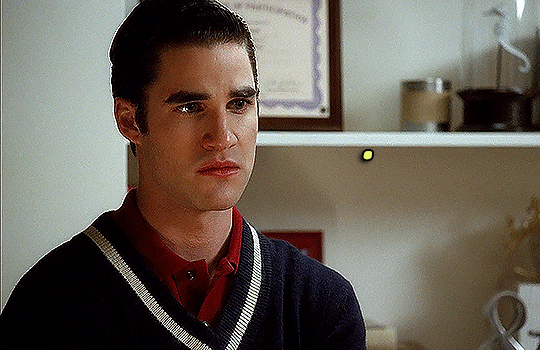

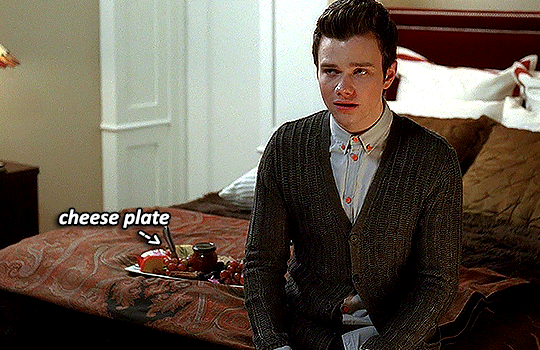




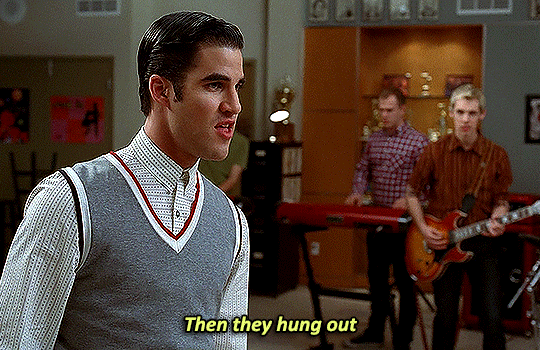

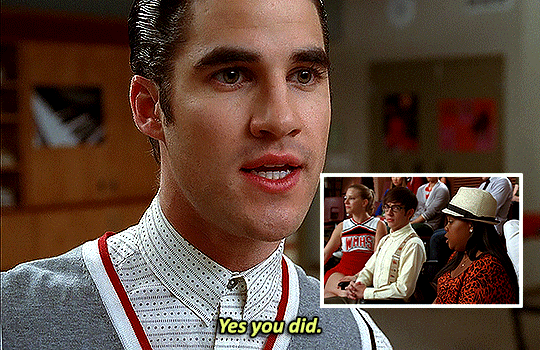
@gleeful-paintbox-project: Dance With Somebody
It's not right. But it's okay.
337 notes
·
View notes
Text
I included the entire text of the article below, which I encourage you to read. I'm just including small snippets above the cut, because the whole article is a little long, but I want to emphasize these points:
"But rape denialism falls into its own separate and bewildering category. Why have so many of Israel’s critics—and pro-Palestine activists—chosen to fight on this hill?
Six months into the war in Gaza, many pro-Palestine activists in the United States are so fully invested in the cause of Palestinian liberation, for which Hamas claims to be fighting—and so steeped in their hatred of Israel—that they are casting aside the progressive ideals that they regularly invoke when castigating Israel. In doing so, they are exposing themselves as hypocrites whose ideology is not forged in a set of universal values but rather is situational and dependent on ethnicity or skin color.
[...]
The charge that Jews have exaggerated and weaponized their suffering has long been the basis for Holocaust denialism, said Amy Elman, a professor of political science and Jewish studies at Kalamazoo College who has written extensively on anti-Semitism and women’s rights. Now that same claim is being used by anti-Semites to portray efforts at justice for October 7 as 'part of a larger nefarious scheme to harm Palestinians.' 'Rape denialism is absolutely consistent with Holocaust denialism,' Elman said, and 'this rape denialism is another form of anti-Semitism.'
One of the more troubling aspects of the left’s response to October 7 has been to cast the struggle between Israelis and Palestinians in simplistic terms: Palestinians are the oppressed, dark-skinned minority population; Israelis are the white oppressors. Never mind that Israel is a diverse, multiethnic society. (Most American Jews trace their origins to immigrants from Europe, but the majority of Israeli Jews descend from those who came, most often as refugees, from the Middle East and North Africa.) This reductionist binary has also made it easier to explain the conflict to a younger generation unfamiliar with Arab-Israeli history but well versed in the American civil-rights movement.
Natalia Mehlman Petrzela, a historian at the New School, says that this black-and-white framing has led to a distorted view of what happened on October 7—one that is informed by a reductive view of modern feminism. 'There is a very powerful and understandable resistance on the left,' she told me, 'to centering "white feminism" or white womanhood in understanding the experiences of women and the purpose of feminism, domestically and internationally.' By this logic, white feminism is inherently 'problematic'—and because many on the left see Israelis as white, she says, they 'see any defense of Israeli women as some sort of capitulation to "white feminism."'
[...]
Jonathan Freedland, a columnist for The Guardian, suggested to me that left-wing rape denialism is, in effect, a refusal to believe that Hamas could stoop so low as to engage in sexual violence. On the surface, this sounds bizarre. Hamas massacred more than 1,100 Israelis, the majority of whom were civilians, and has a long history of massacring Jewish civilians, including children. How could any crime be considered worse than murder? But Freedland says that there are leftists who are prepared to countenance 'armed resistance' but cannot do the same for sexual violence. 'You can see why it would be essential for them to say that Hamas was "only" guilty of killing and not guilty of rape.'
[...]
Frankly, none of these efforts to whitewash the carnage of October 7 makes much sense. You can acknowledge Hamas’s barbarism while still condemning Israel’s military response or criticizing Israel’s prime minister, Benjamin Netanyahu. Indeed, many have done precisely that, including the Biden administration and Senate Majority Leader Chuck Schumer. You can raise questions about specific rape allegations—as the UN report did—while still accepting the overall weight of the evidence.
Instead, many on the left seem determined to justify what happened on October 7 as a legitimate act of Palestinian resistance. 'The images from October 7 of paragliders evading Israeli air defenses were for many of us exhilarating,' one American professor recently wrote. But acknowledging Hamas’s atrocities doesn’t invalidate Palestinian demands for self-determination. You can still embrace Palestinian nationalism and, unlike Hamas, advocate for a two-state solution while also acknowledging that Hamas’s actions on October 7—including the systematic rape of Israeli women and girls—are simply not defensible. Leftists who genuinely support Palestinian statehood do that cause, and themselves, no favor by denying the overwhelming evidence of sexual violence.
The rape denialists might think they are winning a near-term public-relations battle against Israel, but denying Palestinians agency, and accusing Israel of fabricating allegations of mass rape, does far more harm than good.
Above all, it denies reality, perpetuates misinformation, and feeds the empathy gap that separates the two sides. When Israelis and Palestinians look beyond the walls—both real and metaphorical—that separate them, few see fully formed individuals with legitimate grievances and fears that are worthy of their sympathy. Instead, they glimpse caricatures."
"On October 7, Hamas terrorists crossed the border into Israel and massacred more than 1,100 Israelis. The depths of Hamas’s sadism are almost too sickening to comprehend. Babies and children butchered. Parents murdered in front of their children. Families bound together and then burned alive. Others were tortured, and their bodies mutilated while both alive and dead.
Even the harshest opponents of Israel’s subsequent military campaign in Gaza acknowledge, albeit often half-heartedly, that Hamas acted with brutality on October 7 in killing innocents. But many of those same critics refuse to acknowledge the widespread sexual assaults against Israeli women that day.
Since allegations of sexual violence first appeared in the fall, a contingent of anti-Israel activists have sought to disprove them. 'Believe women' and 'Silence is violence' have been rallying cries of progressive feminist organizations for decades. But the same empathy and support have not been shown for Israeli victims.
Many prominent feminist and human-rights groups—including Amnesty International and the National Organization for Women—said little about the sexual-violence allegations. International organizations tasked with protecting women in wartime kept their powder dry. UN Women waited until December 1, nearly two months after the Hamas attack, to issue a perfunctory statement of condemnation.
Israel’s critics have insisted that a lack of firsthand accounts from rape survivors or forensic evidence undercut Israel’s accusations—and have dismissed claims that systematic sexual violence occurred as 'unsubstantiated.' Others have accused the Israeli government of 'weaponizing' accusations of rape to justify Israel’s 'genocide' in Gaza, as an open letter from dozens of feminist activists put it in February. The letter has since been signed by more than 1,000 others.
News outlets that reported on the violence were fiercely attacked. For example, in late December, The New York Times published an investigation that thoroughly detailed the evidence of mass, systematic sexual violence. The story drew an immediate response from Hamas, in language echoing that used by Western activists. 'We categorically deny such allegations,' Basem Naim, a Hamas leader, said in a statement, 'and consider it as part of the Israeli attempt to demonize and dehumanize the Palestinian people and resistance, and to justify the Israeli army war crimes and crimes of genocide against the Palestinian people.'
Stridently anti-Israel independent journalists and activists immediately tried to pick apart the Times story, which culminated in late February with the publication of a more-than-6,000-word exposé by the left-wing outlet The Intercept that accused the Times of flawed reporting. The left-wing magazine The Nation accused the Times of 'the biggest failure of journalism' since the paper’s reporting in the run-up to the Iraq War; the leftist YES! magazine claimed, 'There is no evidence mass rape occurred.'
Considering the vitriolic attacks against Israel since October 7, none of this should come as a surprise. The bloodied and dismembered bodies of dead Israelis had barely been collected before accusations of genocide were being levied by anti-Israel activists. Six months later, such denouncements are routine.
Across the United States and Western Europe, criticism of Israel’s actions quickly and predictably veered into rank anti-Semitism, with Jewish organizations, cultural institutions, artists, and individual Jews targeted by pro-Palestine activists because of Israel’s actions.
But rape denialism falls into its own separate and bewildering category. Why have so many of Israel’s critics—and pro-Palestine activists—chosen to fight on this hill?
Many insist, like the feminists who signed the open letter, that they are questioning claims used to justify a war they oppose. But there is also a disquieting sense that pro-Palestine activists believe they must defend Hamas. Accusations of systematic rape and sadistic sexual violence not only tarnish the terrorist group, but also undermine the notion that October 7 was legitimate 'armed resistance' against Israeli occupation.
Instead of believing women, these activists have chosen to take the word of a terrorist organization that is responsible for the deaths of thousands of Israelis and Palestinians and that has constantly denied that any sexual assaults occurred on October 7.
Six months into the war in Gaza, many pro-Palestine activists in the United States are so fully invested in the cause of Palestinian liberation, for which Hamas claims to be fighting—and so steeped in their hatred of Israel—that they are casting aside the progressive ideals that they regularly invoke when castigating Israel. In doing so, they are exposing themselves as hypocrites whose ideology is not forged in a set of universal values but rather is situational and dependent on ethnicity or skin color.
Rape denialism also feeds the widely held belief among Israelis that non-Jews refuse to acknowledge the horrors of October 7—and that the world is hopelessly biased against them. At the same time, it excuses Hamas’s actions and perpetuates the notion that Palestinians have little agency or responsibility for the continuation of a 75-year-old conflict with no end in sight. It pushes both sides to retreat to their respective corners, unwilling to see the humanity in the other, and makes the long-term goal of peaceful coexistence between Israelis and Palestinians that much more difficult to achieve.
Orit Sulitzeanu is the director of the Association of Rape Crisis Centers in Israel, an NGO that serves as a coordinating body for the country’s nine rape-crisis centers. As she tells every reporter who calls her, ARCCI does not work for or receive money from the Israeli government.
In the days and weeks after October 7, ARCCI began getting 'trickles of information' from doctors and therapists who were encountering survivors of sexual violence. 'Everyone talks to us, and the community of therapists in Israel is small,' Sulitzeanu told me. The calls were intended not to alert ARCCI but rather to ask, 'What do we do?'
As Sulitzeanu told me, Israel has virtually no experience with rape during wartime: 'No one could imagine what happened, actually happened.' Ruth Halperin-Kaddari, the former vice chair of the United Nations’ Committee on the Elimination of All Forms of Discrimination Against Women and a law professor at Bar-Ilan University, told me that Israel was so unprepared for the onslaught of sexual-abuse cases on October 7 that during the intake process in Israeli hospitals, women who survived the Hamas massacre were not even asked if they had been sexually assaulted.
Quickly, ARCCI began holding webinars to help therapists understand the special characteristics of sexual violence in wartime. And as time went on, Sulitzeanu and her staff noticed that the stories they were hearing were remarkably consistent.
The group put together a report combining the information it was receiving (mainly from eyewitnesses and first responders) with media reporting in Israel and around the world. 'Hamas’s attack on October 7th included brutal sexual assaults carried out systematically and deliberately against Israeli civilians,' it concluded. 'Hamas terrorists employed sadistic practices aimed at intensifying the degree of humiliation and terror inherent in sexual violence.'
The report’s section titles tell the story in even more vivid and disturbing detail:
'Systematic Use of Brutal Violence to Commit Rape'
'Multiple Abusers/Gang Rape'
'Rape in the Presence of Family/Community Members'
'Sexual Offenses of Males'
“Execution During or After the Rape”
'Binding and Tying'
'Mutilation and Destruction of Genital Organs'
'Insertion of Weapons in Intimate Areas'
'Destruction and Mutilation of the Body'
The next month, the Office of the Special Representative of the Secretary-General on Sexual Violence in Conflict reached similar conclusions, although without using the word systematic. After a two-and-a-half-week mission to Israel, the UN body concluded that 'there are reasonable grounds to believe that conflict-related sexual violence occurred during the 7 October attacks.'
The UN report does not ascribe responsibility to Hamas and relies on careful, qualified, legalistic language. But Halperin-Kaddari believes the UN report should be applauded. It is, she says, the 'most accurate and comprehensive' accounting of the sexual violence that took place that day—and she praised it, in particular, for verifying accounts when possible but also debunking allegations that were not true.
Halperin-Kaddari noted that investigators 'found the same pattern of violence and sexual assault combined with an extreme degree of cruelty and humiliation, and it occurred in several locations in a relatively short period of time.'
This systematic nature of the abuse is obvious from both reports. For example, ARCCI recounts the eyewitness testimony of one survivor who said that the Nova music festival was an 'apocalypse of bodies, girls without clothes.' In addition, it notes that 'several survivors of the massacre provided eyewitness testimony of gang rape' as well as accounts from first responders of bodies unclothed and bleeding heavily from the pelvic area, and genital mutilation.
The UN report draws a similar conclusion, finding 'reasonable grounds to believe' that rape, gang rape, and the sexual abuse of female corpses occurred at the Nova festival.
At Kibbutz Kfar Aza and Kibbutz Be’eri, the UN found evidence that female victims had been undressed, bound, and killed (though the mission team 'was unable to establish whether sexual violence occurred in kibbutz Be’eri'). In its investigation at Kibbutz Re’em, the UN said there were 'reasonable grounds to believe that sexual violence occurred … including rape.' On Road 232, a key escape route from the music festival, the UN found 'reasonable grounds to believe that sexual violence occurred,' including 'the rape of two women.' In addition, 'along this road, several bodies were found with genital injuries, along with injuries to other body parts.'
At an Israel Defense Forces base overrun by Hamas terrorists, there were, according to media stories cited in the ARCCI report, dead soldiers shot in the genitals and as many as 10 female soldiers with clear evidence of sexual assault. The UN report is more circumspect on this issue, saying that reports of genital mutilation are 'inconclusive.' But Halperin-Kaddari told me that she saw documentation showing that victims had had weapons fired into their sexual organs.
Both reports also agree that hostages released from Hamas’s captivity had been, in the words of the UN special representative, subjected to 'sexual violence, including rape, sexualized torture, and cruel, inhuman and degrading treatment.' The UN report also concluded that violence may be 'ongoing' against the approximately 100 hostages, including young women, still held in Gaza. In its response to the Times story, Hamas pointed to the treatment of Israeli hostages, whom they insisted were being well cared for: 'If the Hamas resistance fighters held such ideas of sex violence, they would mistreat those who were in their captivity,' a Hamas representative wrote in a lengthy Telegram post at the time. Recently, however, The New York Times published a firsthand account of sexual assault and torture from an Israeli hostage released from Hamas captivity in November.
For shelly tal meron, a member of the Israeli Knesset for the opposition Yesh Atid party, the indifference of once-former feminist allies to the sexual violence on October 7 has been acutely painful. 'I sent letters to UN Women, as well as #MeToo and human-rights organizations,' she told me. The response was 'complete silence. I was astonished.'
'Before the war,' she said, 'I was a member of the Knesset’s women’s-rights movement. I would fight for gender equality and I would work with international organizations. Whenever [attacks on women] happened in other countries like Ukraine or Syria, I felt solidarity.' In the aftermath of October 7, she said, 'I felt completely betrayed.'
What is most galling about the pushback on allegations of mass rape is that it is precisely the lack of firsthand accounts and forensic evidence—as well as the initial fog of war—that has opened the door to rape denialists. As Dahlia Lithwick, the senior legal correspondent at Slate, told me, denialists are 'capitalizing on the stigma and shame of sexual assault—and often frustrating lack of evidence in these situations.'
That, according to the feminist author Jill Filipovic, is hardly an unusual circumstance. 'Sexual violence in conflict is virtually never documented the way sexual violence might be documented on the cop shows you’ve seen,' Filipovic wrote on her Substack last December. 'The Israeli recovery and medical teams treated the places where people were attacked on Oct. 7 as war zones and the aftermath of terror attacks, not as standard crime scenes in which a primary goal is to identify a perpetrator.'
Complicating matters further is the particular emphasis in Jewish law on expeditious burial. Sulitzeanu told me that those at the army base who were preparing bodies for burial had 'no capacity to keep the evidence from those killed.' The 'first priority,' she said, 'was to save living people. Second, to collect bodies. Third, identify them and prepare for burial.' Everything else, including proving that widespread rapes had taken place, was secondary.
There is also the distressing reality that so few of Hamas’s rape victims survived. Some were dispatched with a bullet to the head after they’d been assaulted.
The handful of survivors of rape during the attacks on October 7 have, so far, been unwilling to speak publicly. ARCCI has been so adamant in safeguarding them that Sulitzeanu refused to confirm that her association had spoken with them or that their stories were included in the group’s report. The survivors refused multiple requests to meet with the UN mission team, which the UN report chalked up in part to 'the national and international media scrutiny of those who made their accounts public.'
The latter fear is almost certainly a direct by-product of the response to the New York Times story—headlined 'Screams Without Words: How Hamas Weaponized Sexual Violence on Oct. 7.' Buttressed by interviews with more than 150 'witnesses, medical personnel, soldiers, and rape counselors,' as well as 'video footage, photographs,' and 'GPS data from mobile phones,' the story features allegations of sexual violence, including eyewitness accounts. It was the most authoritative investigation by a major American news outlet and should have dealt a major blow to the efforts at denialism and deflection.
But as soon as the Times article appeared, so, too, did the pushback. Much of it came from journalists with a long track record of animosity toward Israel, but it reached a crescendo in late February when The Intercept published its story.
What is most striking about the exhaustive Intercept article is the apparent dearth of original reporting. There is little indication that the authors made any serious effort to contact Israeli government officials, the leaders of Israeli NGOs, or—with three exceptions—even the specific individuals who are named in their story and whose credibility they malign. Instead, The Intercept focuses its inquiry on a freelance Israeli journalist who helped report the story, Anat Schwartz, scrutinizing her social-media activity and parsing a Hebrew-language podcast interview to attack her credibility and, by extension, the credibility of the story as a whole.
The Intercept also sought to chip away at the Times article by focusing on alleged inconsistencies—a process that is easier than it seems when it comes to reporting on sexual violence. After a terrorist attack that killed more than 1,100 Israelis over multiple locations, misinformation ran rampant. False stories, one infamously alleging that multiple babies had been beheaded and another claiming that babies had been strung up on a clothesline, proliferated. In cases of sexual violence, Halperin-Kadderi told me, 'it’s not unusual for misinformation to spread,' and beyond trauma-related inaccuracies and memory failures, there could be a tendency 'to exaggerate and amplify,' which she links to the high levels of trauma associated with sexual violence—both for survivors and for eyewitnesses. She also noted that exaggerated accounts of sexual violence can be 'instrumentalized by leaders to portray their enemy in the darkest way possible.' Even Jeremy Scahill, one of the co-authors of the Intercept article, noted in an interview that inconsistencies in eyewitness accounts do 'not necessarily mean that they didn’t witness something.'
But The Intercept, in its effort to undermine the credibility of witnesses to sexual violence on October 7, painted with a broad brush, creating an inaccurate picture. The flaws in its approach are perhaps best illustrated by the complicated case of Shari Mendes, an IDF reservist who served in the army unit responsible for preparing female bodies for burial and whose testimony Schwartz said helped convince her that there had been widespread sexual violence on October 7.
In the weeks after the attack, Mendes worked 12-hour shifts cleaning and preparing bodies for burial. In an emotional and graphic speech delivered at the United Nations on December 4, Mendes related what she and her team saw: women shot so many times in the head, sometimes after death, that their faces were practically obliterated; multiple women with gunshots in their vagina and breasts; faces permanently cast in distress and anguish.
In an interview in October, though, Mendes told the Daily Mail that 'a baby was cut out of a pregnant woman and beheaded, and then the mother was beheaded.' That was not true. However, Mendes was neither the first person nor the only person to make this allegation. A video falsely claiming to show such an atrocity had made the rounds on social media in the days before the interview was published, and similar claims were promoted by a first responder.
Ryan Grim, another co-author of the Intercept article, told me that such 'demonstrable fabrications' had 'thoroughly discredited' Mendes, and the article notes that 'she has no medical or forensic credentials to legally determine rape' (a point that Mendes has publicly acknowledged). The Intercept story questions why the Times would 'rely on Mendes’s testimony,' and in an interview last month, Scahill suggested that Mendes is among the Times’ 'premier witnesses.' But in fact, Mendes is quoted a single time in 'Screams Without Words,' relaying her account of having seen four women 'with signs of sexual violence, including some with "a lot of blood in their pelvic areas."' Mendes’s claims are backed up by a second witness, an army captain working at the same facility, who added the horrifying detail that 'she had seen several bodies with cuts in their vaginas and underwear soaked in blood.'
The Intercept story fails to mention any of this, and it provides no indication that its reporters attempted to speak with Mendes. (I reached out to Mendes, who declined to comment.) Instead, it criticizes the Times for quoting 'witnesses with track records of making unreliable claims and lacking forensic credentials.'
The Intercept has applied useful scrutiny to some specific claims within the Times story. One of the accounts of apparent sexual assault relayed by the Times came from a paramedic in an Israeli commando unit who said he had discovered the bodies of two teenagers at Kibbutz Be’eri. A March 4 article in The Intercept concluded that two victims 'specifically singled out by the New York Times … were not in fact victims of sexual assault,' and the Times has since updated its story to note that a video of the scene appears to contradict the paramedic’s account.
But that skepticism is not limited to individual witnesses or accounts. The Intercept concedes that 'individual acts of sexual assault may have occurred' but is quick to add that 'rape is not uncommon in war.' It raises doubts about the extent to which Hamas members were responsible for attacks, noting that 'there were also several hundred civilians who poured into Israel from Gaza that day.' (It is not usually the left that tries to blur the distinction between Palestinian terrorists and Palestinian civilians.) The central question, The Intercept contends, is whether the Times 'presented solid evidence' to back the claim that, as the newspaper put it, 'the attacks against women were not isolated events but part of a broader pattern of gender-based violence on Oct. 7.' And it devotes more than 6,000 words to calling into doubt that it did.
Yet The Intercept made no mention of independent efforts to answer this question. There is no reference to the ARCCI report—published a week before The Intercept’s story—which relied on 26 separate media reports from the Israeli press, The Guardian, the BBC, The Times of London, and other outlets, as well as confidential sources, eyewitnesses, and interviews with first responders. Neither does it mention a November 2023 report by Physicians for Human Rights–Israel, which concluded that 'widespread sexual and gender-based crimes' had taken place on October 7. (Asked for comment, Grim dismissed these reports as 'derivative of Western news reports and based on the same sources.')
The Times published a follow-up story on January 29, addressing many of the questions raised by critics of its article. Even in light of criticism of the piece, the Times said in a recent statement that it continues to stand by its coverage 'and the revelations of sexual violence and abuse following the attack by Hamas.'
The UN mission team similarly concluded that the existence of a few false allegations did not undermine the other evidence of sexual violence in 'at least three locations' on October 7. Nor did it limit its inquiry to searching for inconsistencies, paying attention only to those claims it had some reason to doubt. Instead, the investigators took pains to carefully review the scenes, to talk to eyewitnesses and first responders, and to assess the evidence in its totality before presenting the conclusion that 'there are reasonable grounds to believe that conflict-related sexual violence occurred.'
Semafor’s Max Tani recently reported that The Intercept 'is running out of cash,' and that Grim and Scahill had suggested that its board resign and turn operations over to them and the remaining staff. But the publication’s skeptical coverage of the war has apparently been a bright spot for its financial health. 'The Intercept’s unapologetically hostile view of Israel’s post-Oct. 7 military operation in Gaza has galvanized its readers and supporters,' Tani wrote, 'who have responded by helping the publication set internal records for small-dollar donations.'
Grim refused to say whether he believes that Israeli women were raped on October 7 and, if so, whether any of these assaults were committed by Hamas members. (His two co-authors did not respond to any questions.) Instead, he said he had 'addressed these questions repeatedly' and pointed to an interview in which he had said that 'the idea that there would be no sexual assault is not taken seriously by pretty much anybody who understands war and violence.'
Considering the overwhelming evidence that sexual assault took place, despite the inherent challenges in collecting such evidence in wartime, it’s difficult to fathom why so many on the anti-Israel left continue to deny that it occurred or cast doubt on its significance.
The most obvious explanation is that by questioning what happened on October 7, activists hope to undercut the rationale for Israel’s military campaign in Gaza. Showing that systematic sexual abuse didn’t happen would, they believe, demonstrate that Israel is engaged in a mass public deception to justify killing Palestinians.
But some experts I spoke with see other factors at play.
The charge that Jews have exaggerated and weaponized their suffering has long been the basis for Holocaust denialism, said Amy Elman, a professor of political science and Jewish studies at Kalamazoo College who has written extensively on anti-Semitism and women’s rights. Now that same claim is being used by anti-Semites to portray efforts at justice for October 7 as 'part of a larger nefarious scheme to harm Palestinians.' 'Rape denialism is absolutely consistent with Holocaust denialism,' Elman said, and 'this rape denialism is another form of anti-Semitism.'
One of the more troubling aspects of the left’s response to October 7 has been to cast the struggle between Israelis and Palestinians in simplistic terms: Palestinians are the oppressed, dark-skinned minority population; Israelis are the white oppressors. Never mind that Israel is a diverse, multiethnic society. (Most American Jews trace their origins to immigrants from Europe, but the majority of Israeli Jews descend from those who came, most often as refugees, from the Middle East and North Africa.) This reductionist binary has also made it easier to explain the conflict to a younger generation unfamiliar with Arab-Israeli history but well versed in the American civil-rights movement.
Natalia Mehlman Petrzela, a historian at the New School, says that this black-and-white framing has led to a distorted view of what happened on October 7—one that is informed by a reductive view of modern feminism. 'There is a very powerful and understandable resistance on the left,' she told me, 'to centering "white feminism" or white womanhood in understanding the experiences of women and the purpose of feminism, domestically and internationally.' By this logic, white feminism is inherently 'problematic'—and because many on the left see Israelis as white, she says, they 'see any defense of Israeli women as some sort of capitulation to "white feminism."'
Moreover, claims of sexual assault against white women have historically been used to justify racial violence, which has, according to Elman and Petrzela, led some pro-Palestine activists to compare Hamas to Emmett Till, who was accused of whistling at a white woman in the Jim Crow South before his brutal murder. It’s 'unhinged,' Petrzela said, 'but in some ways totally predictable.'
Jonathan Freedland, a columnist for The Guardian, suggested to me that left-wing rape denialism is, in effect, a refusal to believe that Hamas could stoop so low as to engage in sexual violence. On the surface, this sounds bizarre. Hamas massacred more than 1,100 Israelis, the majority of whom were civilians, and has a long history of massacring Jewish civilians, including children. How could any crime be considered worse than murder? But Freedland says that there are leftists who are prepared to countenance 'armed resistance' but cannot do the same for sexual violence. 'You can see why it would be essential for them to say that Hamas was "only" guilty of killing and not guilty of rape.'
Freedland noted that Hamas itself has consistently denied that its fighters committed sexual crimes, perhaps in an effort to retain its standing among devout Muslims. 'Hamas would be nervous of being seen not as warriors for Palestine but as a bunch of rapists who bring shame on Islam,' he said. Indeed, as Sulitzeanu pointed out to me, some Israeli Arabs who have stood in solidarity with the victims of October 7 have also refused to accept that their Palestinian brethren could commit such heinous, un-Islamic crimes.
Frankly, none of these efforts to whitewash the carnage of October 7 makes much sense. You can acknowledge Hamas’s barbarism while still condemning Israel’s military response or criticizing Israel’s prime minister, Benjamin Netanyahu. Indeed, many have done precisely that, including the Biden administration and Senate Majority Leader Chuck Schumer. You can raise questions about specific rape allegations—as the UN report did—while still accepting the overall weight of the evidence.
Instead, many on the left seem determined to justify what happened on October 7 as a legitimate act of Palestinian resistance. 'The images from October 7 of paragliders evading Israeli air defenses were for many of us exhilarating,' one American professor recently wrote. But acknowledging Hamas’s atrocities doesn’t invalidate Palestinian demands for self-determination. You can still embrace Palestinian nationalism and, unlike Hamas, advocate for a two-state solution while also acknowledging that Hamas’s actions on October 7—including the systematic rape of Israeli women and girls—are simply not defensible. Leftists who genuinely support Palestinian statehood do that cause, and themselves, no favor by denying the overwhelming evidence of sexual violence.
The rape denialists might think they are winning a near-term public-relations battle against Israel, but denying Palestinians agency, and accusing Israel of fabricating allegations of mass rape, does far more harm than good.
Above all, it denies reality, perpetuates misinformation, and feeds the empathy gap that separates the two sides. When Israelis and Palestinians look beyond the walls—both real and metaphorical—that separate them, few see fully formed individuals with legitimate grievances and fears that are worthy of their sympathy. Instead, they glimpse caricatures.
As pro-Palestinian activists rightly demand that Israel come to grips with how its policies breed humiliation and desperation among Palestinians, so too must supporters of the Palestinian cause face the reality that rejectionism and terrorism have contributed to Israeli fears that peaceful coexistence is not possible.
When such activists surrender their ideals and dismiss the evidence that sexual violence took place on October 7, they feed the already overwhelming belief among Israelis and Diaspora Jews that those who advocate for the Palestinians and witheringly criticize Israel’s actions are simply not interested in their humanity.
Any solution to the Arab-Israeli conflict must start by recognizing not just the lived reality of Jews and Palestinians, but the abundant feelings of trauma and fear that have made reconciliation so difficult to achieve. Rape denialism pushes Israelis and Palestinians further apart. It isn’t just wrong; it doesn’t just diminish the trauma experienced by Israeli women on October 7—it makes the pursuit of peace and genuine reconciliation impossible."
229 notes
·
View notes
Text

Philippine Frogmouth (Batrachostomus septimus), parents with chick, family Podargidae, Philippines
photograph by Mhark Gee
7K notes
·
View notes
Text


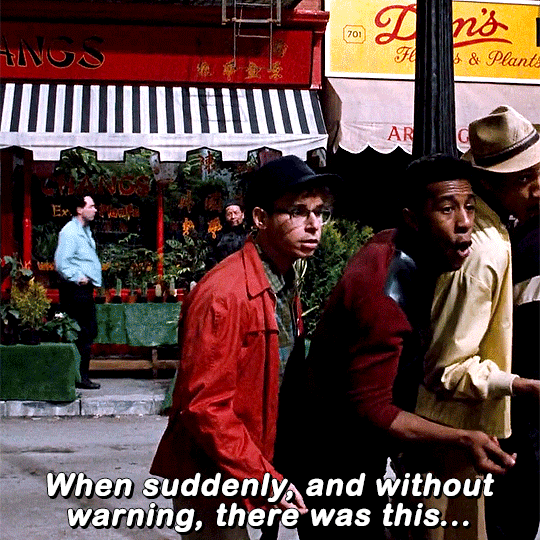

LITTLE SHOP OF HORRORS (1986) | dir. Frank Oz
12K notes
·
View notes
Note
Hello! Could someone help me find this fic please?
Kurt and Blaine broke up and years later they see each other in the street (in New York) I kind of remember the story went from past (mostly Blaine and his ex’s and how he never was fully happy with them) and present, and how they go from talking, to having sex and finally getting back together.
I think Blaine is with his boyfriend when he runs into Kurt and they break up shortly after because the boyfriend realizes Blaine’s not over Kurt. But I’m not too sure about that part.
Thank you!
I'm not sure of the exact fic, but did look through our reunion tag. These are reunion fics that you might consider, unless someone can identify the one you ask? ~Jen
Someone Like You by @iconicklaine
Kurt and Blaine keep up their very own version of “When Harry Met Sally” for years, a friendship fraught with sexual tension and longing, until the agendas of Adele (yes, THE Adele), a bored NY socialite and a super-sweet hetero couple bring our boys together. The only problem is… they’re both in committed relationships.
~~~~~
The One That Got Away by Catcat85
AU after the breakup scene in Season 6 Episode 1. Heartbroken and devastated after Kurt ended their relationship, Blaine changed his life completely. He quit NYADA. Enrolled at NYU and became a Pediatric Surgeon. He married Sebastian Smythe and they later have a beautiful daughter named Elena. Kurt realized he made a huge mistake by letting Blaine go. But the realization came too late. Blaine had already moved on and wanted nothing to do with Kurt. Kurt did his best to move on with his life. He graduated from NYADA and started getting cast in off Broadway productions, which led to having his big break when he was cast to be Link Larkin in Hairspray on Broadway. Since then, his career had taken off and he became a successful actor, but he couldn’t find a man he loves enough to marry. Desperate to have a family of his own, he found an egg donor and surrogate to have a baby, a boy which he named Chris. This is a story about a lost love between Kurt and Blaine, as well as a love story between Chris and Elena. No matter how hard their parents try to keep them apart, Chris and Elena find each other. Even after 25 years, the strength of their love might just be the thing to bring Kurt and Blaine back together.
~~~~~
Foundations by gentlereader
After breaking up Kurt and Blaine went their separate ways.
Blaine’s now a successful LA musician while Kurt is a high school counselor.
The creation of the Pavarotti Music Foundation was their dream… and now its a reality.
~~~~~
A Song For Cordelia by @melissamotown [PDF] [EPUB]
Kurt never called Blaine after the break up, despite Isabelle’s advice. It was not out of spite, or because he didn’t believe she was right, but because his heart didn’t know how to forgive. Five years later, when their paths cross once more, Kurt and Blaine decides to be friends again - just friends. But where the heart goes, the man follows…
43 notes
·
View notes
Text

For someone who loves clothes so much, I can't believe you haven't noticed that I'm not in my Warbler outfit.
pose ref: (x)
#omg i love this so much!!!#we are so gifted with wonderful fandom artists#fanart#purple piano project#klaine#klisses#mynonah
105 notes
·
View notes
Text

Camera.
Mailing list | Patreon
6K notes
·
View notes
Text
So I wasn't sure I wanted to post this here quite yet, but I am working on crafting a yarn dyeing business. I am fairylightyarns on Instagram where you can watch my slow posting progress because I generally lurk on the social medias. Here's some of what I've done thus far though!

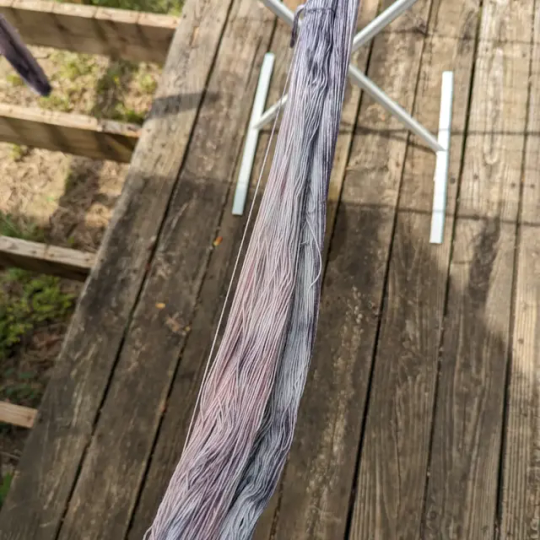





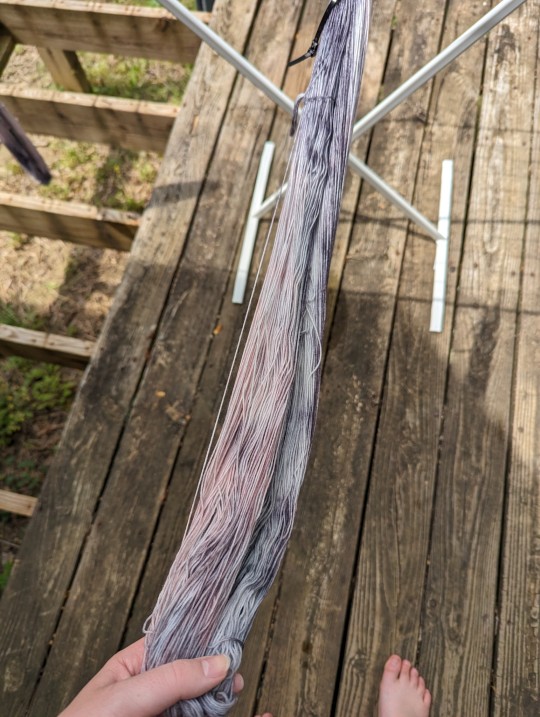
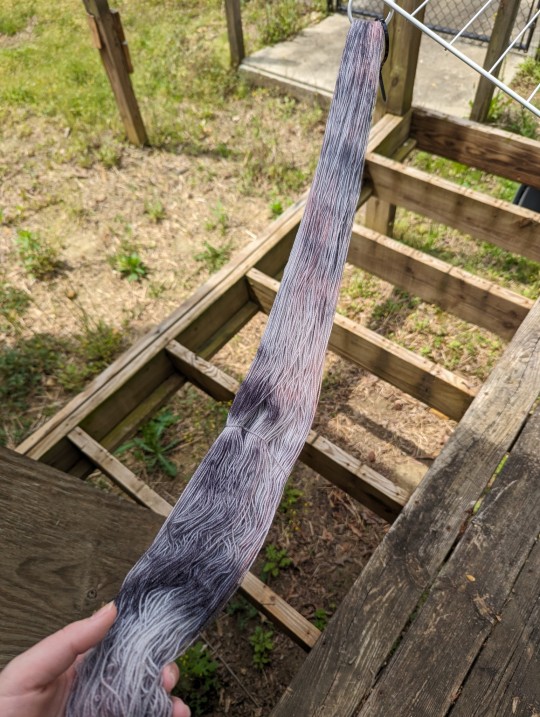

119 notes
·
View notes
Text
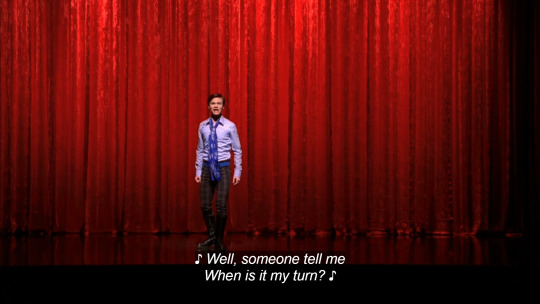


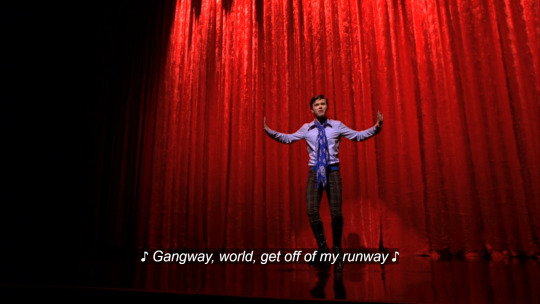
GLEE S01E18 Laryngitis
34 notes
·
View notes
Text
Roses are red, that much is true, but violets are purple, not fucking blue.
924K notes
·
View notes
Text

Struck by his beauty. Had to draw.
117 notes
·
View notes





